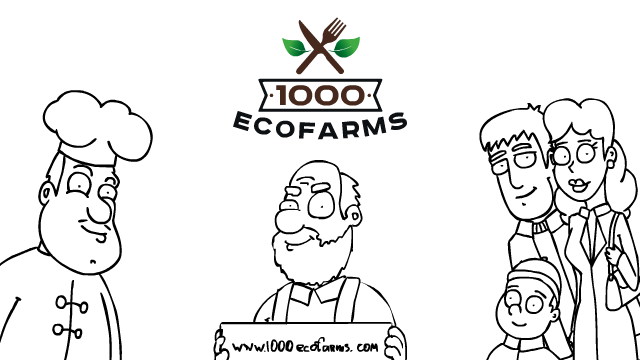Walk in to most grocery stores today and more than likely, you will find a little section or two with “vegan alternatives”. Many others will have a whole aisle dedicated to such products. Walk into a Whole Foods, and just about everything you can think of that’s traditionally made with animal products has been reimagined for the vegan diet: dairy free cheeses, meat-free lunchmeats, eggless mayo, and even eggless eggs.
Considering vegans make up approximately 1% of the entire U.S. population, there is clearly a demand for vegan foods amongst people who aren’t technically vegans themselves. Whether for health or environmental reasons (and although the debate is still vast an ongoing), many people seem to like the idea of consuming a little less of animal-based products, sparking interests in these vegan alternatives.
One company, Hampton Creek, made a big wave when it’s product Just Mayo, an eggless mayo, hit stores and pleased the taste buds of people everywhere—including celebrity chef Andrew Zimmerman, who preferred the eggless Just Mayo to the real thing. The company also sells eggless cookie dough and eggless cookies, and has a wide variety of more eggless products in the works. Furthermore, as reported by Bloomberg, Hampton Creek is looking to raise $200 million for further product development and expansion, an ambitious goal for a startup, indicating continued growth for the company and most likely for the vegan alternative market entirely.
Many of these products rely on the idea that vegan alternatives are better for you and better for the environment. The industrial meat industry is believed to be a major cause of environmental harm, including issues like water consumption, pollution, and excessive greenhouses gas emissions—in fact, the meat industry is considered one of the largest contributors to global climate change. Additionally, new diet research has shown that eating more plants and less meat is healthier for our bodies as well, as was reflected in the 2015 Dietary Guidelines for Americans that was released early this year.
Regardless of motivations, its clear that vegan alternatives to animal products are becoming increasingly popular with consumers, and companies like Hampton Creek are appearing in increasing numbers in order to meet that demand.
What do you think about vegan alternatives? Have you or would you try them?
Considering vegans make up approximately 1% of the entire U.S. population, there is clearly a demand for vegan foods amongst people who aren’t technically vegans themselves. Whether for health or environmental reasons (and although the debate is still vast an ongoing), many people seem to like the idea of consuming a little less of animal-based products, sparking interests in these vegan alternatives.
One company, Hampton Creek, made a big wave when it’s product Just Mayo, an eggless mayo, hit stores and pleased the taste buds of people everywhere—including celebrity chef Andrew Zimmerman, who preferred the eggless Just Mayo to the real thing. The company also sells eggless cookie dough and eggless cookies, and has a wide variety of more eggless products in the works. Furthermore, as reported by Bloomberg, Hampton Creek is looking to raise $200 million for further product development and expansion, an ambitious goal for a startup, indicating continued growth for the company and most likely for the vegan alternative market entirely.
Many of these products rely on the idea that vegan alternatives are better for you and better for the environment. The industrial meat industry is believed to be a major cause of environmental harm, including issues like water consumption, pollution, and excessive greenhouses gas emissions—in fact, the meat industry is considered one of the largest contributors to global climate change. Additionally, new diet research has shown that eating more plants and less meat is healthier for our bodies as well, as was reflected in the 2015 Dietary Guidelines for Americans that was released early this year.
Regardless of motivations, its clear that vegan alternatives to animal products are becoming increasingly popular with consumers, and companies like Hampton Creek are appearing in increasing numbers in order to meet that demand.
What do you think about vegan alternatives? Have you or would you try them?






